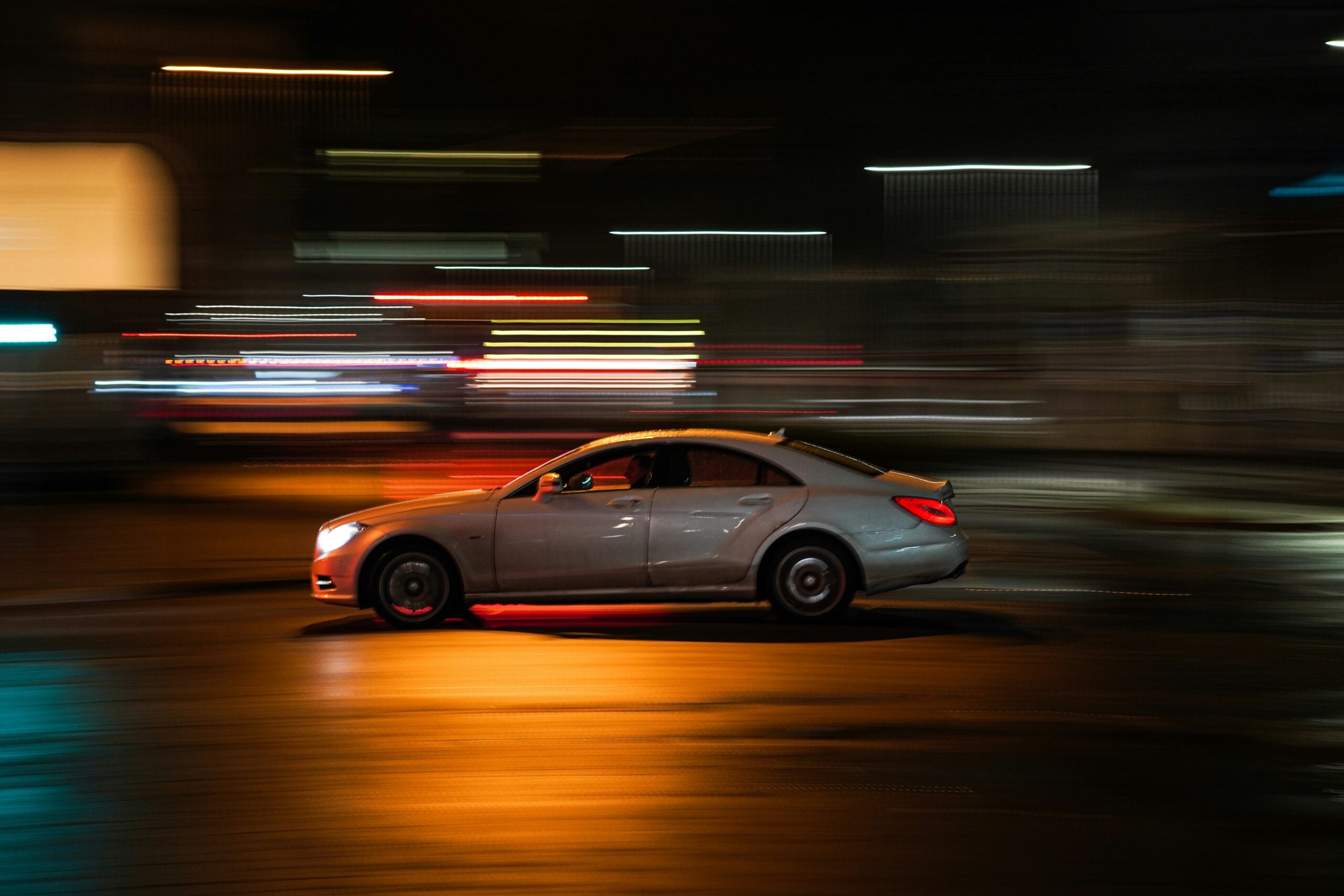In the realm of DUI cases in California, the circumstances surrounding the initial traffic stop play a pivotal role. Understanding the legal grounds for a traffic stop and the potential to challenge its validity can significantly influence the outcome of a DUI case.
DUI Traffic Stop Must Be Legally Justified
Every traffic stop leading to a DUI arrest must be legally justified. Law enforcement officers need a reasonable suspicion that a driver is violating the law, whether it’s a traffic violation or signs of impairment. Without a valid reason for the stop, any evidence obtained – including breathalyzer results or admissions – may be deemed inadmissible in court.
To illustrate, consider a scenario where a driver is pulled over for erratic lane changes, which can be a potential traffic violation. However, if the attorney can demonstrate that the driver’s lane changes were well within the bounds of safety and legality, they can argue that the traffic stop lacked a valid basis. This could lead to the exclusion of subsequent evidence and significantly weaken the prosecution’s case.
The impact of an Experienced DUI Attorney
An experienced DUI attorney can scrutinize the reasons provided by the officer for the traffic stop. If the stop is found to lack a valid basis, it can lead to the suppression of evidence, weakening the prosecution’s case or even leading to its dismissal.
Let’s examine a case where an officer stops a driver for a broken taillight. Upon careful inspection, the attorney discovers that the taillight was, in fact, functioning correctly at the time of the stop. In this instance, the attorney can argue that the stop lacked a valid reason, and any evidence obtained subsequently, such as a breathalyzer test, should be excluded from the trial.
10 Ways an Attorney can Challenging a DUI Traffic Stop
- Understanding the Legal Grounds:
An attorney’s first crucial role is to scrutinize the details of the traffic stop. The stop must be legally justified, meaning that law enforcement officers must have reasonable suspicion that a driver is violating the law, whether through a traffic violation or signs of impairment. If the stop was initiated due to a minor traffic violation, such as a broken taillight, the attorney can argue that this violation did not provide a valid basis for the stop, potentially leading to the exclusion of evidence obtained during the stop.
- Challenging Officer Rationale:
Attorneys can delve into the officer’s rationale for the stop. If evidence, such as dashcam footage, contradicts the officer’s claims, the attorney can use this information to contest the validity of the traffic stop. Suppose an officer alleges that the driver was swerving erratically, but the dashcam footage reveals that the driver maintained a steady lane position. In this case, the attorney can challenge the officer’s rationale for the stop.
- Evidence Exclusion:
Successfully challenging the stop’s validity can lead to the exclusion of evidence obtained during the stop. This could include field sobriety tests, breathalyzer results, or statements made by the accused. If an attorney can prove that a traffic stop was unjustified, they can file a motion to suppress any evidence gathered after the stop, potentially weakening the prosecution’s case significantly.
- Weakening the Prosecution’s Case:
Challenging the traffic stop’s validity weakens the prosecution’s case overall. If crucial evidence is excluded, it becomes more challenging for the prosecution to prove guilt beyond a reasonable doubt. When key evidence, such as breathalyzer test results, is excluded due to the stop’s invalidity, it can significantly diminish the prosecution’s ability to secure a conviction.
- Negotiating with Prosecution:
Attorneys can use the weakened state of the prosecution’s case as leverage during negotiations. This can result in more favorable outcomes, such as reduced charges or penalties. In cases where the traffic stop’s validity is in question, the attorney can use this as bargaining power when negotiating with the prosecution, potentially securing a more favorable plea bargain for the accused.
- Protecting Constitutional Rights:
Attorneys play a vital role in ensuring that the client’s constitutional rights are upheld. If the client’s Fourth Amendment rights against unreasonable searches and seizures were violated during the traffic stop, the attorney can file motions to suppress evidence. If the attorney discovers that the search conducted during the traffic stop violated the Fourth Amendment, they can argue for the exclusion of any evidence obtained through that search.
- Examining Police Conduct:
Attorneys have the capability to investigate police conduct during the stop. If there are indications of bias, discrimination, or misconduct, the attorney can use this information to challenge the stop’s validity. If the attorney finds evidence of racial profiling or discriminatory practices during the stop, they can bring this to the court’s attention as a basis for challenging the stop.
- Expert Knowledge of DUI Laws:
Attorneys possess expert knowledge of DUI laws and regulations. They can identify specific violations or errors that occurred during the traffic stop, such as improper calibration of breathalyzer equipment. If the attorney determines that the breathalyzer equipment used during the stop was not properly calibrated, they can argue that the test results are unreliable and should be excluded from the case.
- Experience with Precedent Cases:
Drawing from their experience and knowledge of precedent cases, attorneys can build a strong defense by citing similar cases where unjustified stops led to evidence exclusion or favorable outcomes for the accused. An attorney may reference past cases where traffic stops were successfully challenged, leading to evidence exclusion or case dismissals. This can strengthen the argument for challenging the current traffic stop.
- Strategic Defense Planning:
Attorneys can strategize the defense plan based on the specific circumstances of the traffic stop. They may advise the client on the best approach, whether it involves challenging the stop’s validity, negotiating with the prosecution, or pursuing alternative sentencing options. Depending on the details of the traffic stop, an attorney may recommend focusing on challenging the stop’s validity if there are strong grounds for doing so. Alternatively, if evidence suppression is likely, the attorney may prepare a strategy that centers on the exclusion of certain evidence.
Having The Expert Attorney
Challenging a DUI traffic stop is a critical aspect of building a strong defense. That’s why having the expertise of an attorney is not only advised but is essential for safeguarding the client’s rights and securing the best possible outcome. Allowing them to identify flaws in the traffic stop process, protect constitutional rights, and navigate the legal proceedings effectively is critical to your defense.
Were you stopped and subsequently charged with a DUI in California? The validity of that stop can make or break your case. At Saros Law APC, we review every detail of your arrest, ensuring your rights were upheld. Don’t leave your fate to chance; contact us today at 310-341-3466 for a comprehensive defense strategy.
FAQs
Q: Can any traffic violation lead to a DUI arrest?
A: While any traffic stop can lead to a DUI investigation if the officer observes signs of impairment, the initial reason for the stop must be valid, such as speeding or a broken taillight.
Q: What if the officer stopped me based on a “hunch”?
A: A mere “hunch” without observable evidence of a violation or impairment isn’t a valid reason for a stop. Such stops can be challenged in court.
Q: Can challenging the traffic stop lead to my case being dismissed?
A: If the traffic stop is deemed invalid and crucial evidence is excluded as a result, it can significantly weaken the prosecution’s case, potentially leading to a dismissal.
Q: What if I admitted to drinking during an invalid stop?
A: Admissions made during an unjustified traffic stop can be argued as inadmissible, negating their impact on your case.
Q: How soon should I contact an attorney after a DUI arrest?
A: Immediately. The sooner you have legal representation, the better they can gather evidence, including details of the traffic stop, to build a strong defense.





